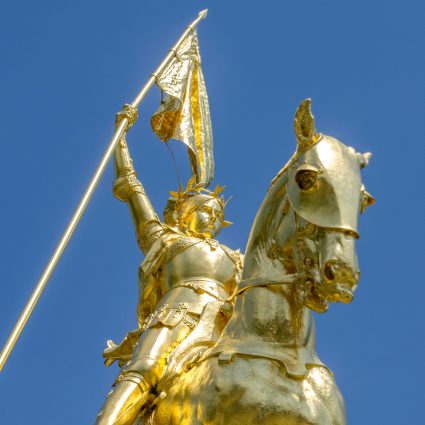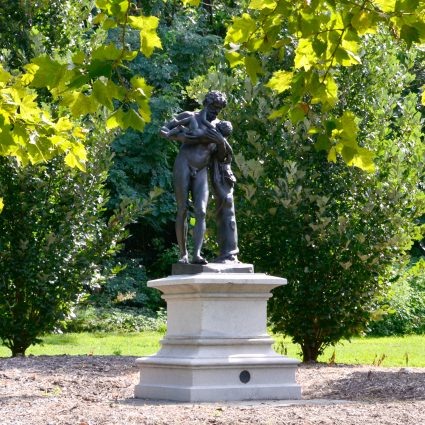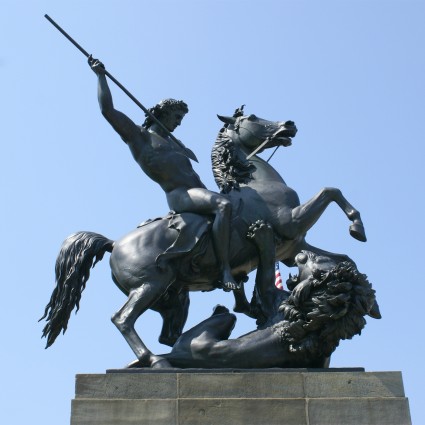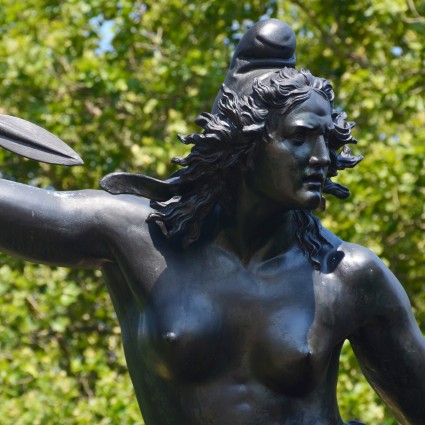At A Glance
Considered one of the finest surviving sculptures of classical Greece
Contemporary Greek artists Nikos Kerlis and Theodora Papayannis cast this duplicate using the lost-wax process, one of the most accurate methods available
Around 478 BCE, Polyzalos, the Tyrant of Gela in Sicily, commissioned a statue to express his gratitude to the god Apollo for his charioteer’s victory in the Pythian Games. Now in the museum at Delphi, this bronze is considered one of the finest surviving sculptures of classical Greece. The cast near Philadelphia’s Museum of Art was a gift from the Greek government.
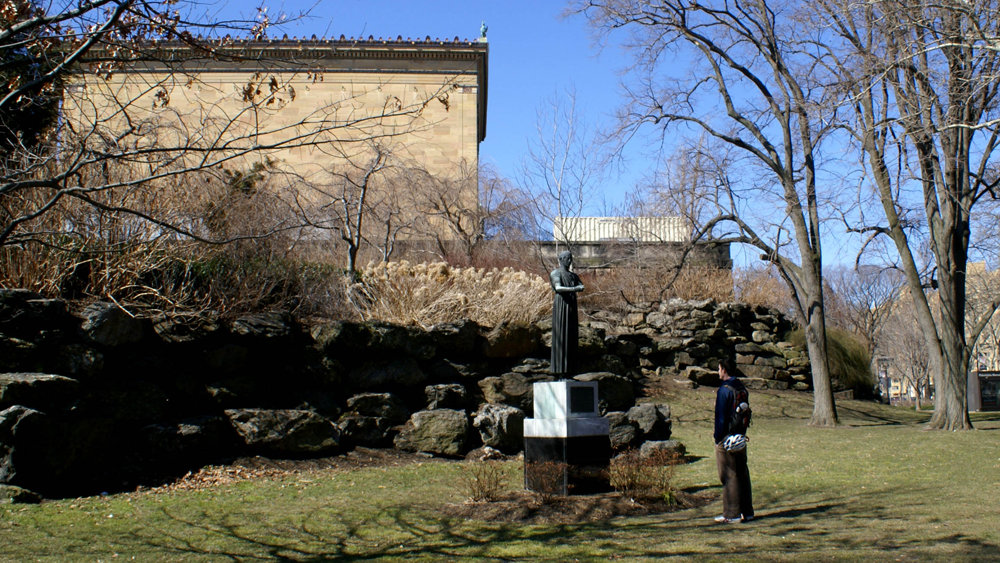
Contemporary Greek artists Nikos Kerlis and Theodora Papayannis cast this faithful duplicate using the lost-wax process, one of the most accurate methods available. As in the original, the left arm is missing, as are the chariot and horses that once formed part of the sculpture.
Voices heard in the Museum Without Walls: AUDIO program: Ann Kuttner is professor of Greek, Roman, and Etruscan art at the University of Pennsylvania. Penelope Lagakos is the daughter of Judge Gregory Lagakos who facilitated the donation of the Charioteer. Shane Stratton is a sculptor in Philadelphia who has taught at the Tyler School of Art and the Pennsylvania Academy of the Fine Arts. | Segment Producer: Eric Molinsky
Museum Without Walls: AUDIO is the Association for Public Art’s award-winning audio program for Philadelphia’s outdoor sculpture. Available for free by phone, mobile app, or online, the program features more than 150 voices from all walks of life – artists, educators, civic leaders, historians, and those with personal connections to the artworks.
RESOURCES
This artwork is part of the Along Kelly Drive tour, and the Around the Philadelphia Museum of Art tour.
